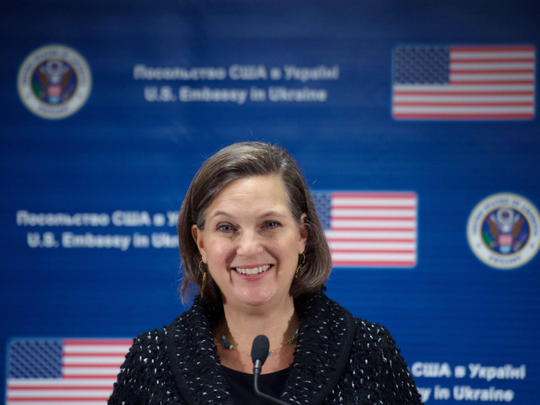
Just like the polls prior to the United Kingdom’s Brexit referendum, the polls in the run-up to the United States’ presidential election were wrong. And just like Brexit, the unthinkable has happened: Donald Trump is now President-elect of the US, signalling the triumph of nativism over internationalism. In the contest between open and closed societies, the latter are clearly winning and liberal democracy is quickly becoming a resistance movement.
With Trump in the White House, the US will become obsessed with itself. It is safe to say that the Transatlantic Trade and Investment Partnership between the US and the European Union (EU) is now a nonstarter. But a Trump presidency will adversely affect Europe in more ways than that. The EU’s territorial integrity itself is now at stake.
Trump has made it abundantly clear that his foreign-policy priorities do not include European security. He doesn’t recognise Nato’s strategic necessity and he has shown an interest in trans-Atlantic relations only when he has alluded to unpaid bills. A Trump presidency will lead to an epic geopolitical shift: For the first time since 1941, Europe cannot rely on the US defence umbrella; it now stands alone.
Europe has been only too happy to make life easy for itself. For the past century, trans-Atlantic relations have adhered to a perverse, unspoken dynamic, whereby the more active the US has been, the more Europe has dozed off. When the Americans have intervened abroad — as they did in Iraq — Europe has responded with grandstanding lectures about “imperial overstretch”. And when the Americans have failed to intervene, or intervened late or ineffectively — as in Syria and Libya — Europeans have demanded more American leadership.
That era is now over. Trump knows that the EU has the money, technology and know-how to be a global power equal to the US, and it is not his problem that Europe lacks the political will to harness its full potential. Europeans have assumed for too long that it is cheaper and safer to let the US solve their problems, even in its own backyard. With Trump’s election (and given America’s checkered foreign-policy legacy), Europe must discard this belief.
Migrant flows
The EU should treat Trump’s election as a wake-up call to take charge of its own destiny. Ongoing conflicts, such as Syria’s bloody civil war and Russia’s annexation of Crimea and intervention in Eastern Ukraine, directly affect EU member states’ security, economies and societies. Yet, Russians and Americans, rather than Europeans, have so far determined Ukraine’s fate, as well as the fate of other European borderlands. The EU has, as a result, forfeited ultimate control of its own security, trade relations and migrant flows.
In 2014, a revealing conversation between US Assistant Secretary of State for European and Eurasian Affairs, Victoria Nuland, and former US ambassador to Ukraine, Geoffrey Pyatt, was leaked and posted online. Discussing the US response in Ukraine — after former Ukrainian president Viktor Yanukovych had fled to Russia — Nuland says, “[Expletive] the EU.” This is an attitude that Europe has enabled. While it was bad enough to hear such sentiments expressed by a member of the administration of US President Barack Obama, one can only imagine what Europe will encounter under Trump, who may not even bother to appoint an official for “Europe and Eurasian Affairs”.
This is why the EU can no longer wait to build its own European Defence Community and develop its own security strategy. It should start by streamlining and expanding bilateral and regional relations, not least among and between the Baltic and Scandinavian countries, as well as between Belgium and the Netherlands, and Germany and France. All of these disparate relations must be united under a single European command, with common funding and a shared defence-procurement system.
The EU must become independently capable of ensuring its own security. Anything less will be insufficient to secure its territory. This is a difficult but vital decision that the EU has postponed for too long. Now that Trump has been elected, it can wait no longer.
— Project Syndicate, 2016
Guy Verhofstadt is group leader of the liberals in the European Parliament. His book Europe’s Last Chance. Why the European States Must Form a More Perfect Union will be published by Basic Books in January 2017.










